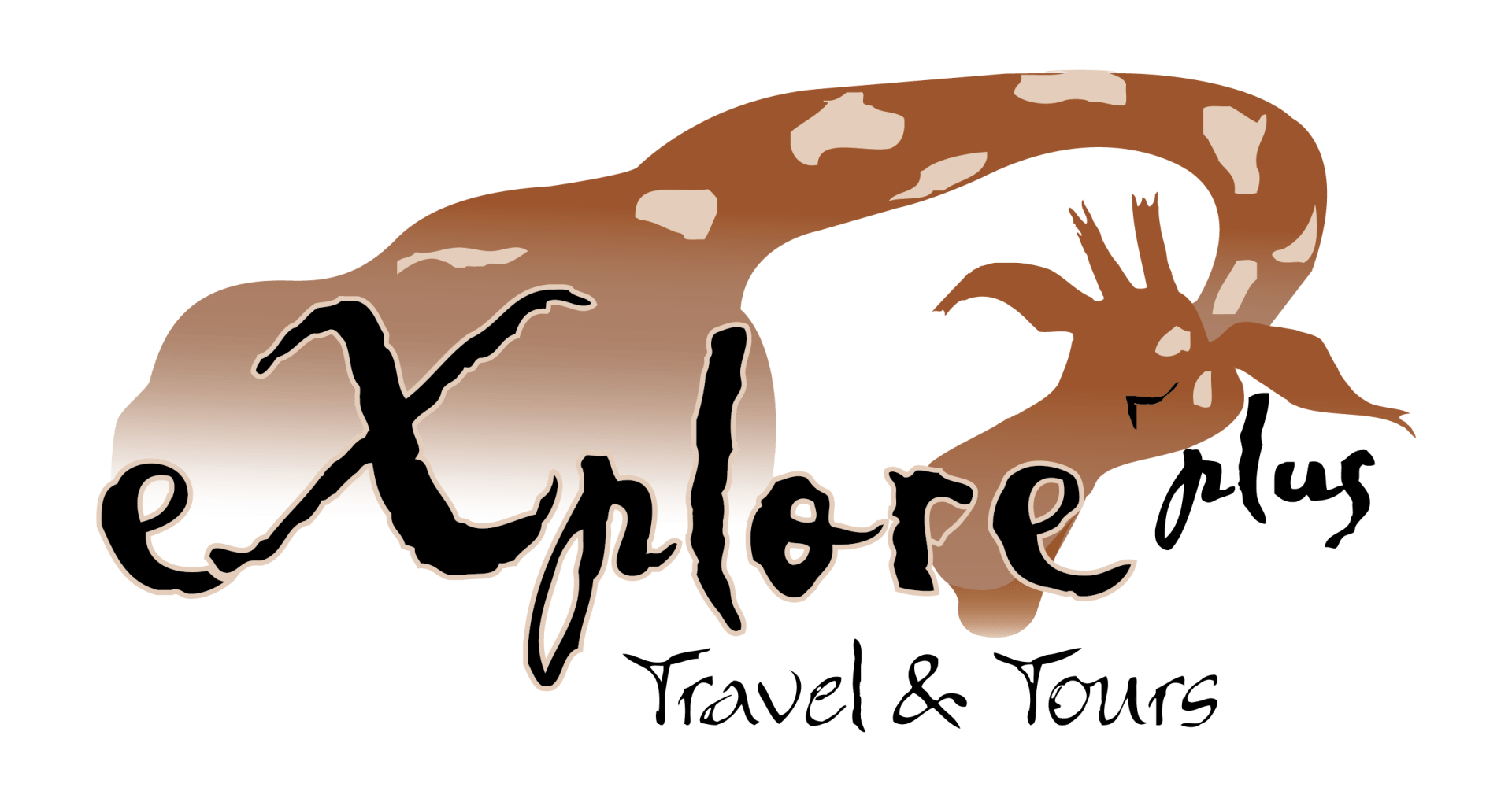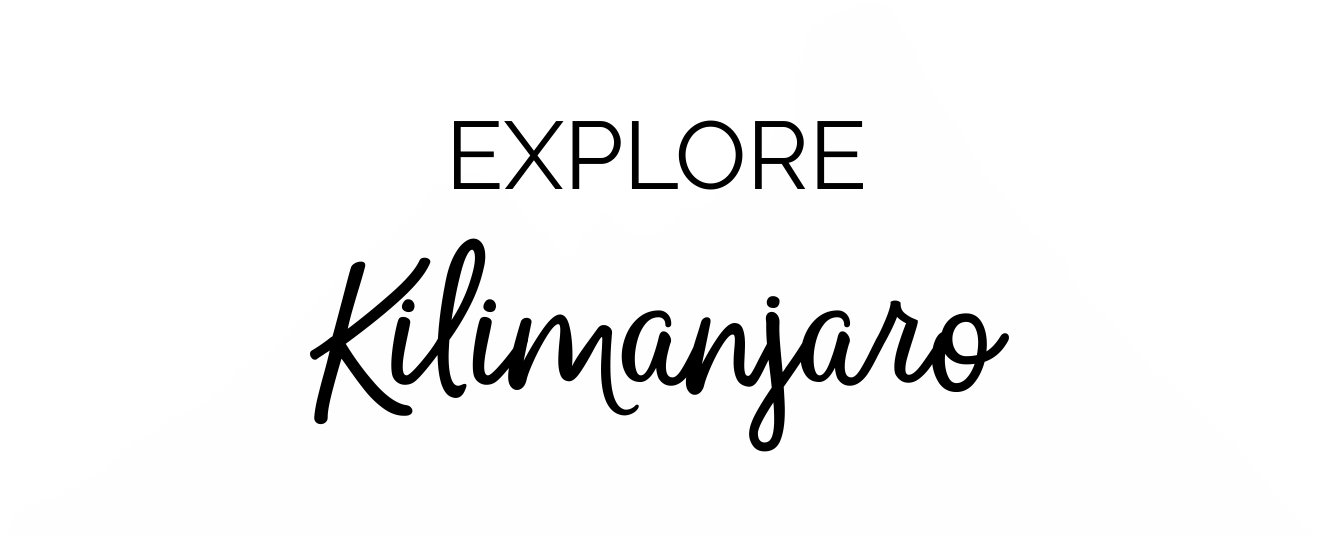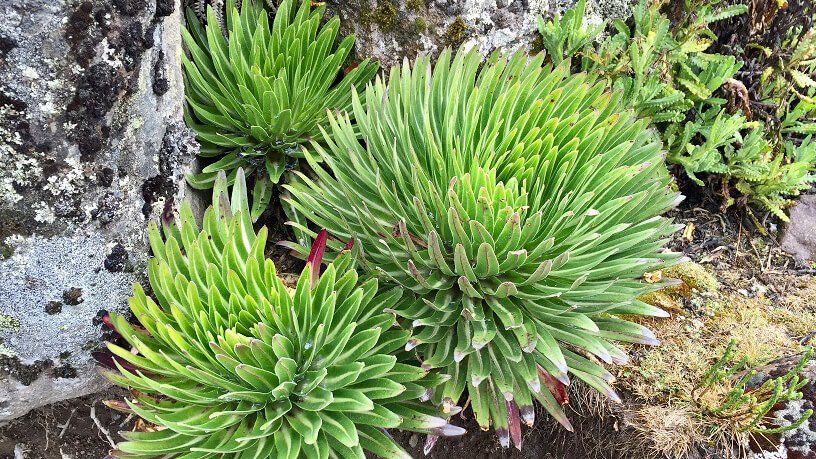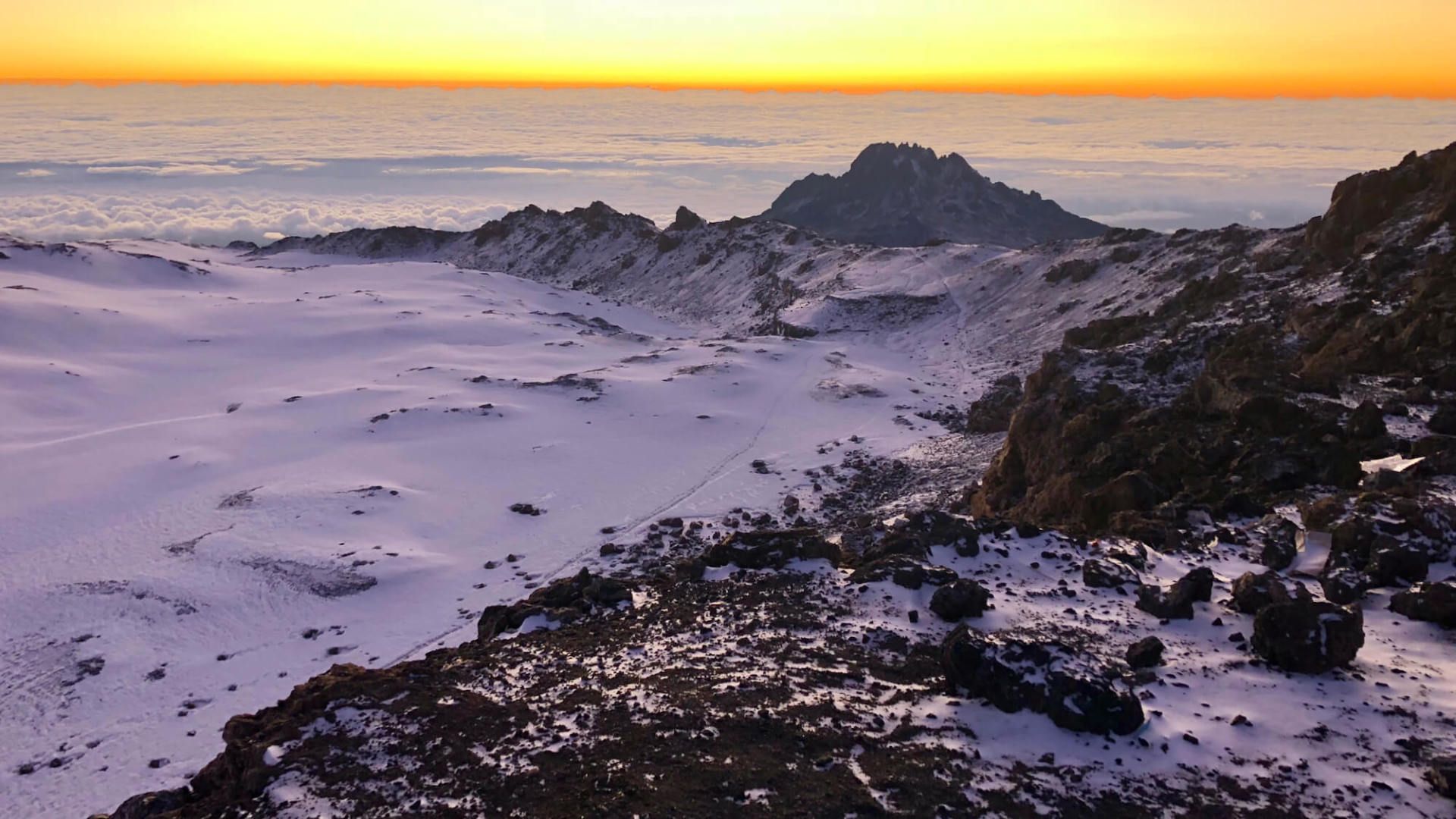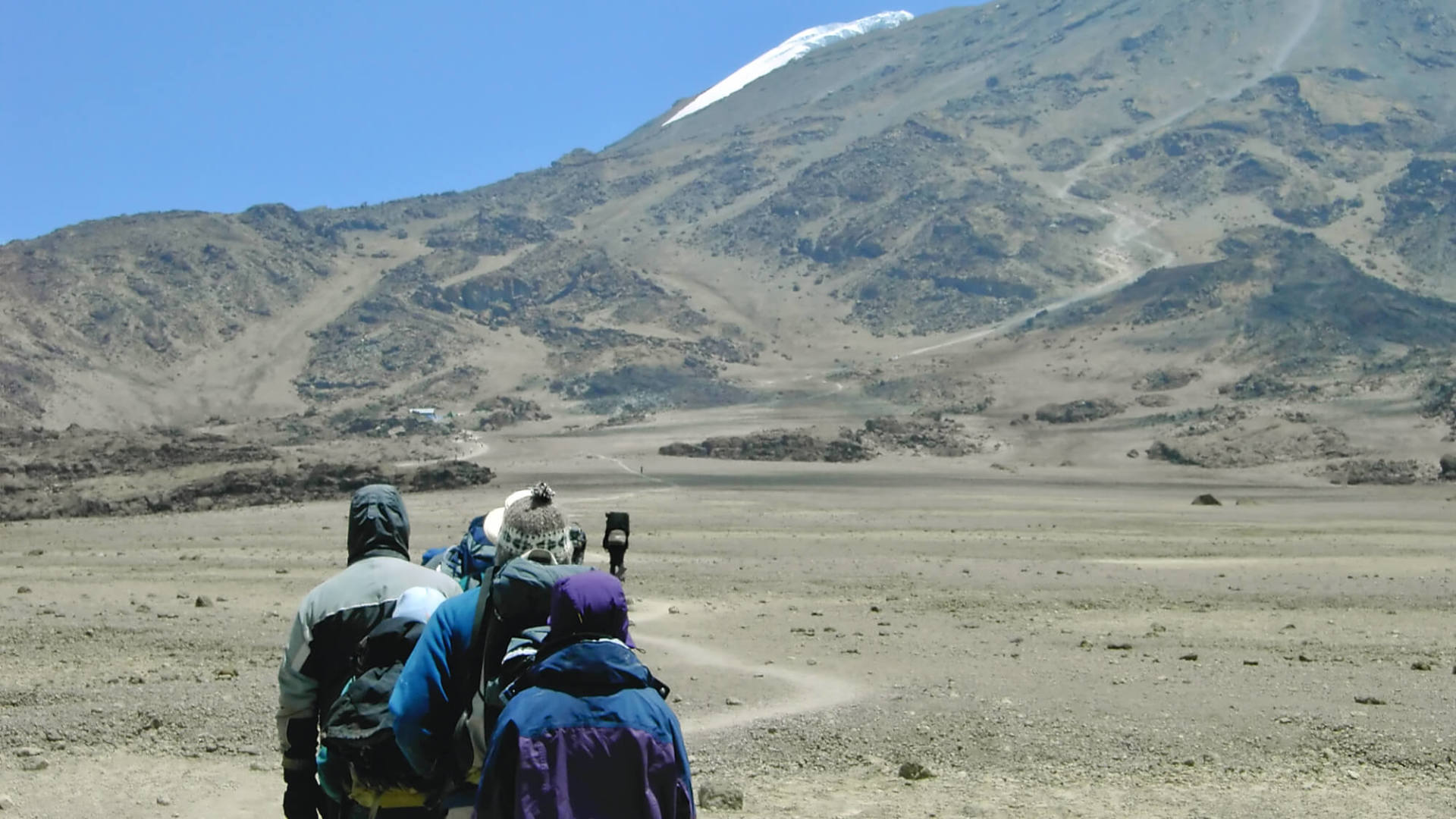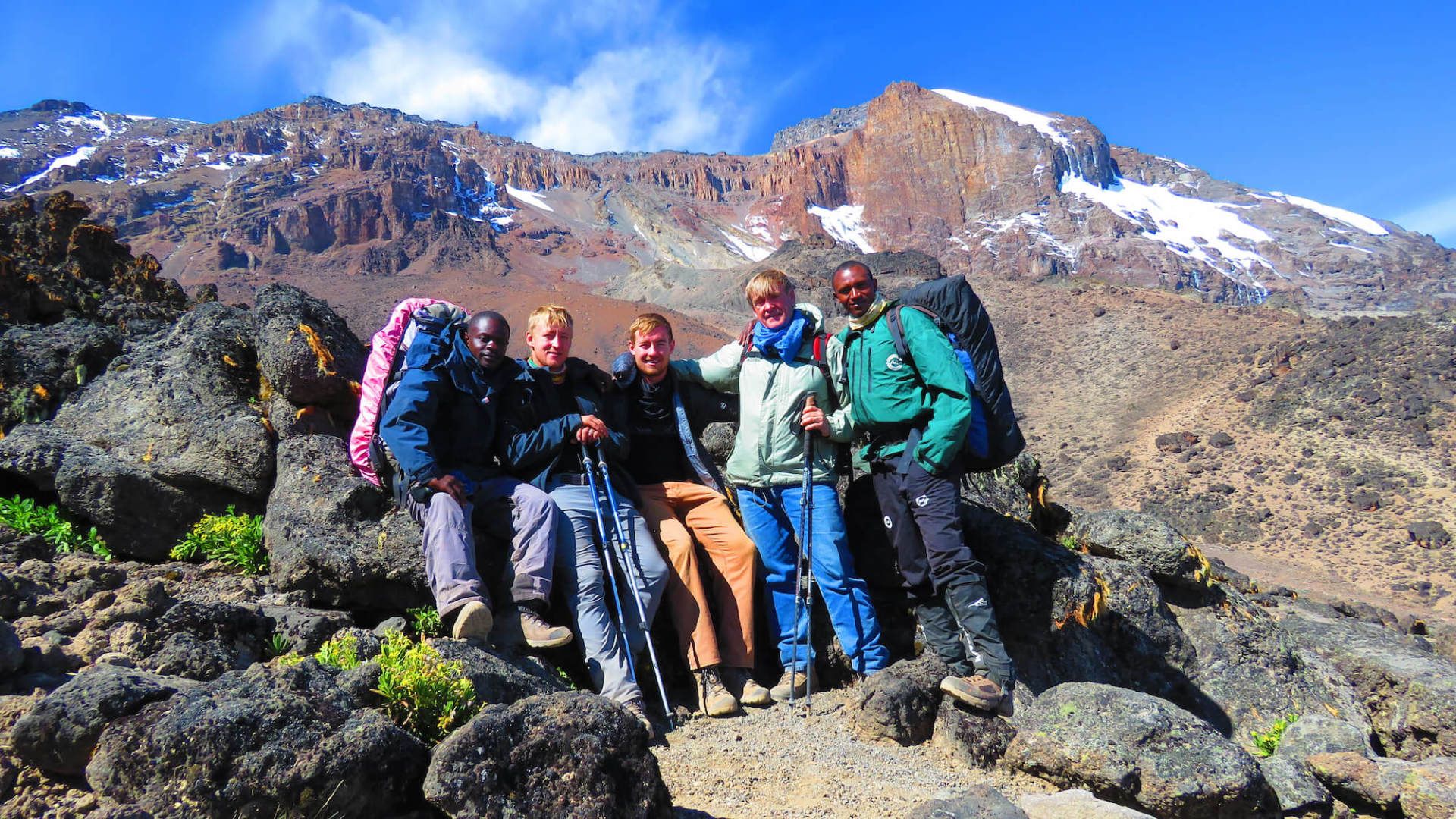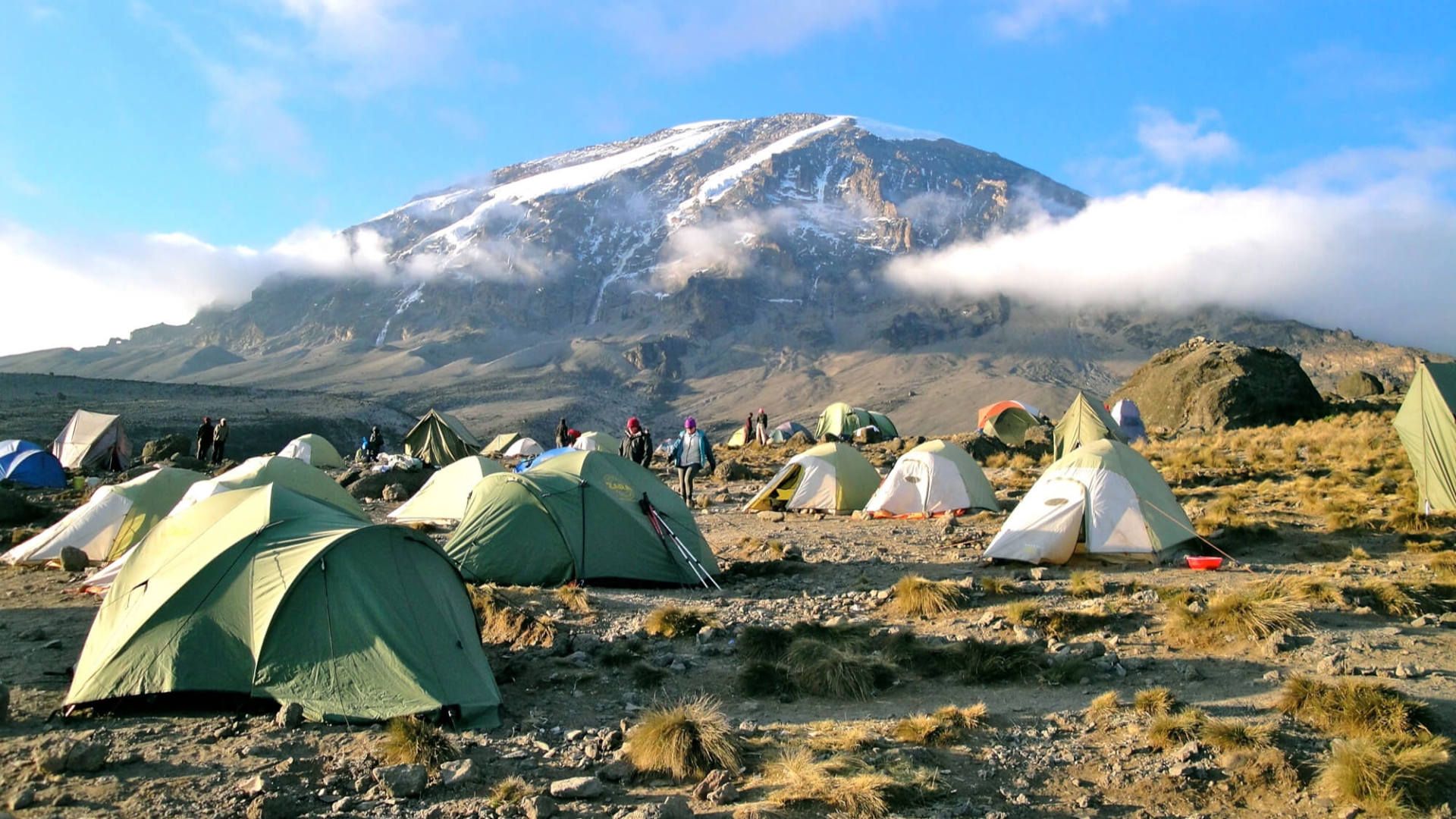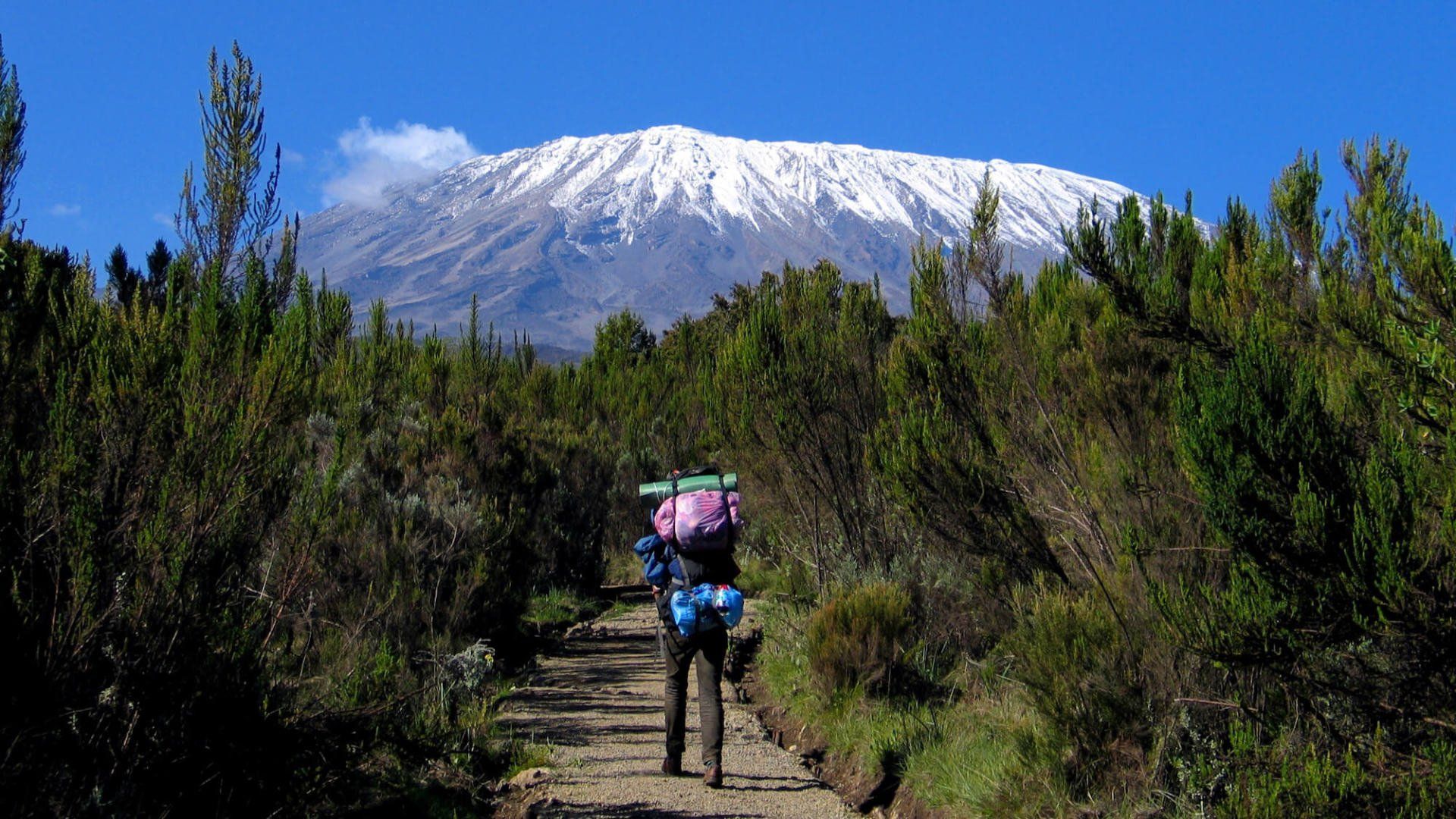Questions & Answers about Kilimanjaro
- How Hard Is It To Climb Kilimanjaro?
Don’t let anybody tell you that climbing Kilimanjaro is easy. Although the routes to the summit vary in degree of difficulty, reaching the summit is hard and you need a good level of fitness as well as a lot of endurance to complete it. The Machame Route is one of the most scenic routes, while the Rongai Route is the easiest ascent route. All the routes vary in terms of scenic beauty, wildlife, climbing time and difficulty. We recommend spending more days on the mountain for better acclimatisation. Should you decide to climb Kilimanjaro on a 7 or 8 day trek you increase your chances of success significantly. Please discuss this option with one of our consultants.
- When Is The Best Time To Do The Climb?
Tanzania has dry and wet seasons, so whilst Kilimanjaro can be climbed year-round, we recommend mid-June to October or late December to March. Due to Mount Kilimanjaro's exceptional height, the mountain creates its own weather and it can change swiftly. You should always be prepared for wet days and cold nights and expect minus temperatures, even at your first camp.
Rainy season – April and May (avoid this time as the mountain becomes slippery and treacherous).
Average temperatures – During the daytime on the lower slopes it is around 30°C and at 3000m altitude, it ranges between 5°C to 15°C. Night time temperatures can be well below freezing point. Summit night temperatures vary between -10 °C and -30 °C.
- Do You Need To Train For The Climb? How?
Climbing Kilimanjaro is as much about your physical endurance as it is about your mental stamina. Your training should be aimed on preparing you to be fit enough to comfortably walk 70-80km in seven days. This should sufficiently prepare you for the 6/7 days hike of about 6 hours per day during your Kilimanjaro hike. Take daily walks in all sorts of weather and do it with your daypack and three litres of water to help you to adapt to carrying extra weight. Go camping before the trip. This will give you the opportunity to get comfortable with your gear and establish additional needs that can be addressed before your trip. Get help from a personal trainer or gym instructor if you need guidance with your physical preparation. We can provide you with a fitness programme and advice on how to be as prepared as can be.
- Can Anyone Climb Kilimanjaro?
Most people (regardless of age or physical condition) can climb Kilimanjaro if they are in pretty good shape and doesn’t have health problems. The minimum age restriction for doing a Mount Kilimanjaro hike is 11 years old. However, it is possible to get special approval from Kilimanjaro National Park Authority should the child be younger.
DO NOT CLIMB KILIMANJARO – if you suffer from a respiratory, cardiac, or circulatory disorder or a disability that limits mobility. The risk of altitude sickness will increase if you are already suffering from respiratory tract infection like a cold.
If you have the flu, DO NOT travel until you are FULLY recovered. Flu is the precipitating factor for high altitude sickness and your health is our priority. Please contact us with your concerns as we will gladly extend your climb to a later date if needed.
- What Should I Pack?
Correct clothing is very important on Mount Kilimanjaro!
Do not underestimate this giant as it will test your physical and mental endurance and has unpredictable weather conditions. Night temperatures are below zero, even at your first camp. You need to be prepared by having functional gear that can keep you warm, dry and safe. Remember that the weight restriction on your gear bag is 15 kg. We will guide you to ensure that you are fully prepared by the time you leave for your climb.
- What About Altitude Sickness?
Kilimanjaro is technically not a very difficult mountain to climb, but due to its height, altitude sickness is a reality that you need to be aware of. Our guides have experience and knowledge and will monitor you during the whole climb. You have to pace yourself to keep within safe limits. There are no specific factors such as age, sex, or physical condition that correlate with susceptibility to altitude sickness. Please advise us if you are sick or have any worrying symptoms or conditions that might place you at risk.
MORE information on Altitude Sickness
- Will There Be Bathrooms/Showers?
There are public toilets (long drops) at all the camp sites. We can arrange a private portable toilet for you if needed. We rely on nature’s hideaway spots (behind bushes or rocks) while hiking. There are no showers, but your hiking crew will make sure you have a bowl with warm water for washing before meals. Wet wipes are also very useful for freshening up.
- What If I Don’t Have Anyone To Climb With Me?
We depart to Kilimanjaro on a monthly basis, giving you the chance to join up with other eXplore Plus hikers. You will meet like-minded people with a communal goal and have a great opportunity to make new friends.
- How Do I Get There?
Kilimanjaro has its own international airport and is half way between Arusha and Moshi. It is 50 minutes’ drive from Moshi where your Kilimanjaro climb starts.
- What About Food And Water?
It is very important to drink between three and four litres of water per day (ABSOLUTE MUST) to stay hydrated. You need to buy your water supplies for day one, after that your porters will boil water for you every evening. Your hiking crew will make sure you get loads of carbs, protein and the necessary food to get you up and down with the fuel needed to sustain you. We do cater for special dietary requirements.
- How Many Days Do I Need To Climb Kilimanjaro?
You will spend the first and last light in a hotel in Moshi. You can hike any route (up and down the mountain) in 6 days although we recommend adding an extra night on the mountain for acclimatisation. Please discuss this option with one of our consultants.
- What Are The Tipping Guidelines?
Those who have climbed Kilimanjaro know that your guide and porters are the heart and soul of your climb. A good porter can mean the difference between making it or having to turn back disappointed. Our porters and guides are paid according to local standards. They do however, rely on their tips as an extra income. Although tipping isn’t compulsory, it is essential that you budget for it as it is probably something that you would like to do once you realise the value they add.
We recommend:
Guide: $20 Per day (from the group)
Assistant guide: $14 Per day (from the group)
Cook: $14 Per day (from the group)
Waiter: $10 Per day (from the group)
Porter: $9 Per porter per day
Anything else that I should know?
MACHAME 6-DAY ROUTE
8 days / 7 nights
Climb: 6 Days
Date: Pre-scheduled / private climb
MACHAME 7-DAY ROUTE
9 days / 8 nights
Climb: 7 days
Date: Pre-scheduled / private climb
MARANGU 6-DAY ROUTE
8 days / 7 nights
Climb: 6 days
Date: Private climb
LEMOSHO 6-DAY ROUTE
8 days / 7 nights
Climb: 6 days
Date: Private climb
LEMOSHO 7-DAY ROUTE
9 days / 8 nights
Climb: 7 days
Date: Private climb
UMBWE 6-DAY ROUTE
8 days / 7 nights
Climb: 6 days
Date: Private climb
RONGAI 6-DAY ROUTE
8 days / 7 nights
Climb: 6 days
Date: Private climb
